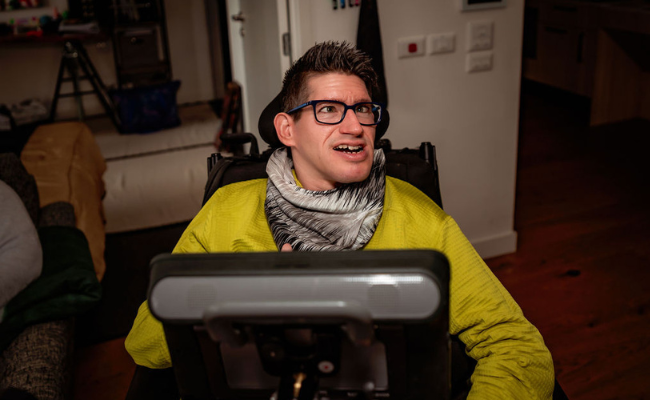Podcasts about accessible housing translated into 8 different languages
Understanding accessible housing options can be challenging at the best of times and when resources aren't available in your own language, this adds another layer of complexity
That’s why the Housing Hub has teamed up with the Speak My Language (Disability) program, to launch two podcast episodes that have been translated in 8 different languages as an initial step towards making our resources more inclusive for our culturally and linguistically diverse community. The translated languages for these podcasts include Vietnamese, Mandarin, Cantonese, Korean, Arabic, French, Hindi and Punjabi.
In these podcasts, Chief Social Enterprise Officer of the Housing Hub, Alecia Rathbone, was interviewed to discuss the topics of ‘Finding an Accessible Home’ and ‘Renting or Selling an Accessible Home’.
Finding an Accessible Home
This podcast explains how the Housing Hub can support you to find the home that is right for you.
“Having a safe and suitable place to live is an essential part of living well. When someone has a disability, it can be really hard for them or their family to find a home to live in that suits their needs,” Rathbone notes.
The Housing Hub website does the work for you!
The website has a ‘Housing Seeker Profile’ where people with disability can answer a few simple questions about where they want to live and what features they want in their home. This allows the website to notify the seeker of potential matches.
Learn more about Accessible Housing by listening to the podcast in multiple languages here.
Renting or Selling an Accessible Home
In this episode, Rathbone explores the process and benefits of listing an accessible property on the Housing Hub website.
There are many reasons a landlord with an accessible home could list on the Housing Hub:
- A person with a disability will generally be a reliable, long-term tenant. This is because there are not a lot of options in the rental market for people with disabilities. Once they find a property that suits them, they’re likely to commit to that property long-term.
- Housing options in the rental market are limited for people who use wheelchairs or other mobility aids . For this reason, most people who use wheelchairs or mobility aids tend to be extra careful to avoid causing damage or problems in your property.
- Accessible features in your home may add value to your property when you rent or sell it! Around 15% of people in Australia have a disability. By having a home with accessible features, you are expanding the size of your potential market. After all, an ‘accessible’ home is more accessible for everyone.
- And most significantly, finding a tenant with a disability could change their life for the better. It gives them a home they can live in comfortably and independently.
Learn more about Renting or Selling an Accessible Home by listening to the podcast in multiple languages here.
For more information about our services:
- Call our NDIS Housing Advice Line on 1300 61 64 63 Monday to Friday, from 10am to 3pm (AEDT).
- If you need an interpreter, you can call the Translating and Interpreting Service on 131 450. Request your language and ask them to connect you to 1300 61 64 63.
- Get in touch with us via the Contact Us form
The Speak My Language (Disability) program is funded by the Commonwealth Department of Social Services and is proudly delivered by the Ethnic Communities’ Council of NSW as the lead agency in partnership with all State and Territory Ethnic and Multicultural Communities' Councils across Australia.
Browse Resources

Housing Seeker Profile
Creating a Housing Seeker Profile is a simple process which involves telling us what you are looking for and what is important to you.

Housing Roadmap
The Housing Hub has worked alongside people with disability to map out the stages of a housing journey and the information you need to know about when moving through each step.

Living More Independently
The Housing Hub has teamed up with Mable to create a three-part series about living more independently.
